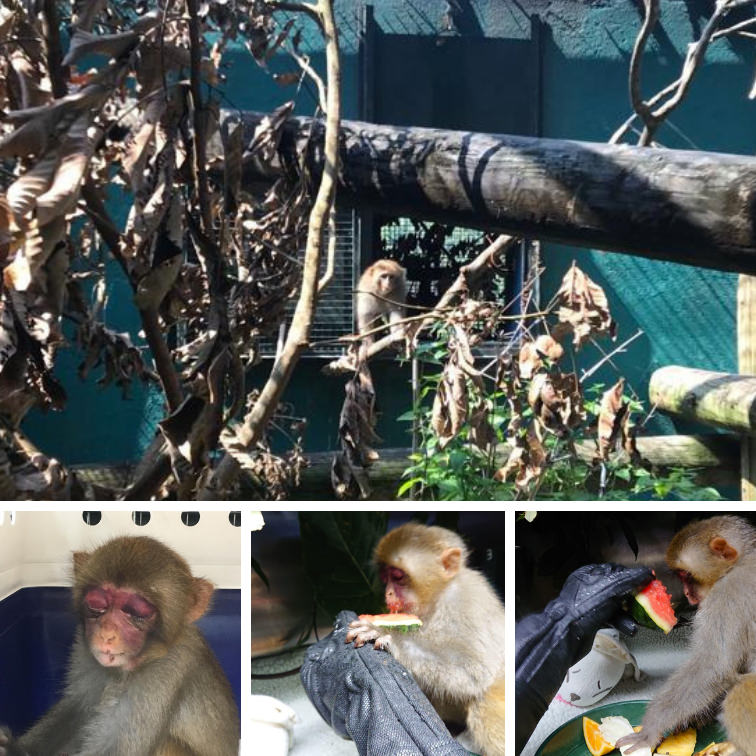Young Rhesus Macaque with face injuries rescued on International Primate Day
Every year 1st September is a special day as it is the International Primate day which reminds us to speak up for all primates. On that day in 2019, a young Rhesus Macaque (Macaca mulatta) was found injured in Shatin by a member of the public. The monkey was rescued by SPCA Inspectors and delivered to the KFBG Wild Animal Rescue Centre for health assessment, treatment and care.
The juvenile male macaque arrived with a seriously bruised face; his eyes were not able to fully open. The KFBG Rescue Team staff carefully hand fed him during his early recovery. When he regained his strength and could eat by himself, he was moved to a larger outdoor enclosure. This enclosure is furnished with branches and leaves to resemble his natural woodland habitat. After one month of care in the Rescue Centre, his vision and physical condition had improved enough for the young male to be considered for wild release.
The release was undertaken by AFCD staff that are familiar with the local Macaque troupes. On the day of release (10 Oct 2019), once the AFCD staff opened the cage, the little monkey ran fast into the wild. The release location was close to where his family group was located and the hope was that he would find macaques that he recognised. We hope that this little monkey that had previously suffered serious trauma will now live out a long life in his natural home (the forest)!
Rhesus Macaques are a kind of primate and are protected by law in Hong Kong. They have shared Hong Kong with people (another primate) for many years. To maintain harmony with our wild neighbours, we must understand them better and think about why we have conflicts with them. Most problems have developed because of successive intrusions by humans into their wild areas and illegal feeding. This confuses them and conflicts may then develop.
The partnership between SPCA and KFBG has seen many thousands of native wild animals getting a second chance to live out their lives in the wild since the establishment of the Wildlife Rescue Programme. It is important that injured wild animals, like the young macaque, are captured quickly and rushed into veterinary care so they could have a good chance of recovery. The SPCA Inspectorate are skilled at dealing with a wide range of animals and their quick decisions and rapid rescue increases the likelihood of survival for the rescued animals.
Please do not feed wild macaques, and leave them to find their natural food in the forest!

Photo credit: SPCA(HK) (bottom left), KFBG (top, bottom middle and bottom right)


